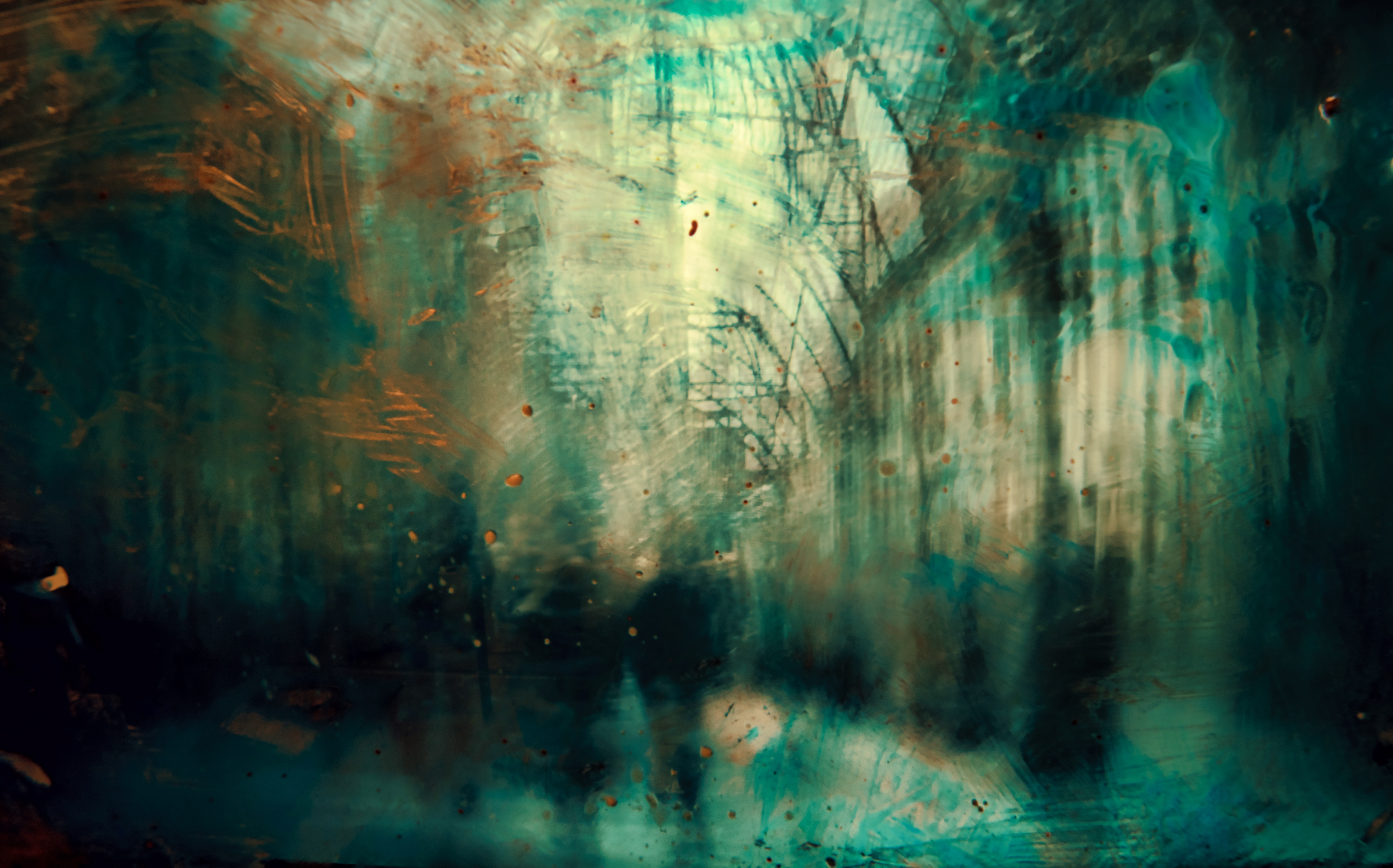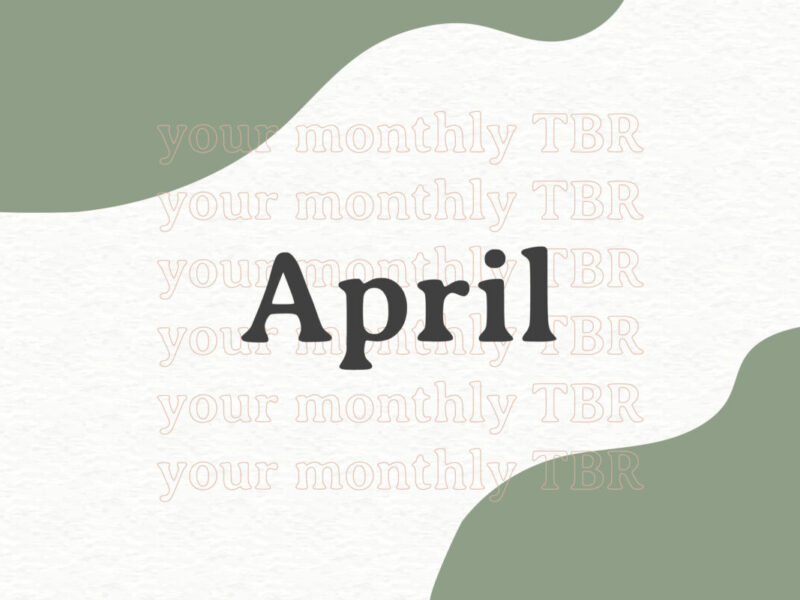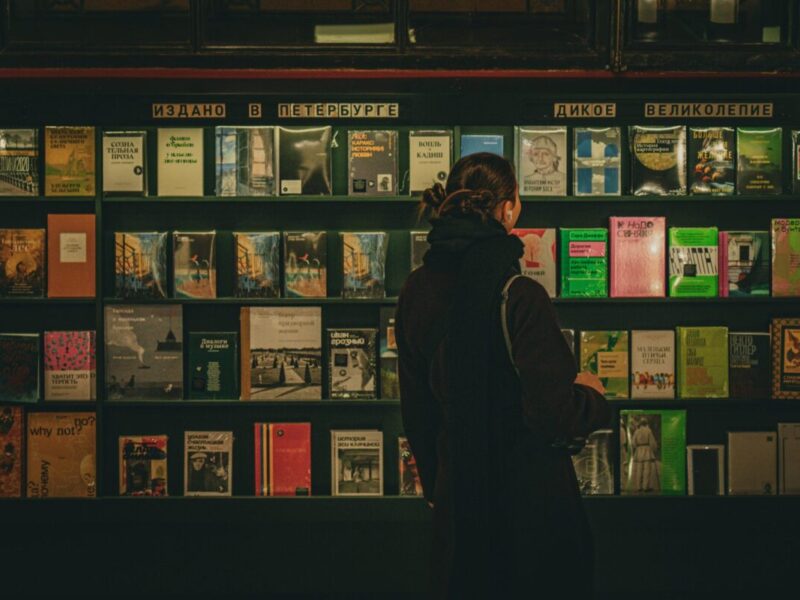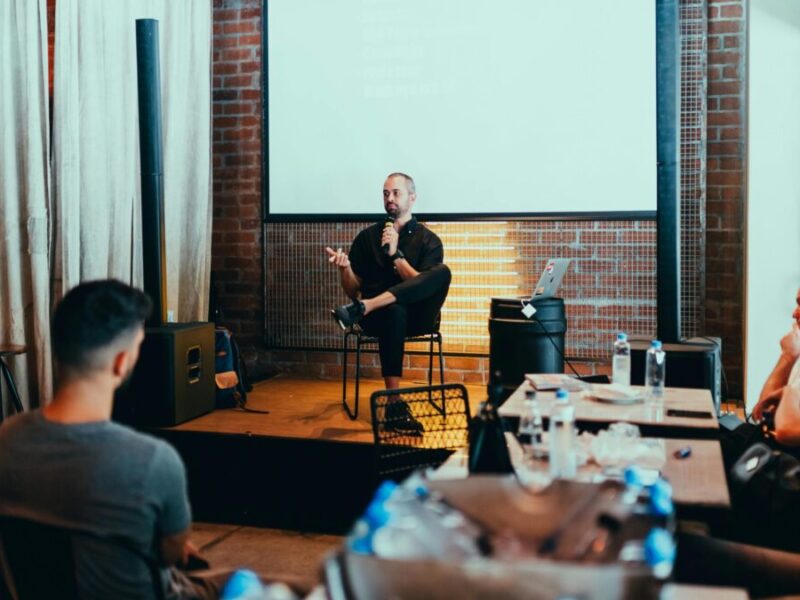This is the first feature in the New Poet series, a resource for readers who are poets and looking to take their poetry to the next level.
In my career as a full-time creative, I have developed several business models for my fellow creatives that help them gather information, interpret data, and project trends in order to identify their creative purpose and philosophies and take their artistry to a professional level. Right now, I’m working with Dayton, Ohio native Leroy Bean as he builds his creative work, presence, and brand, with the goal of increasing his presence and revenue as a poet and spoken word artist.
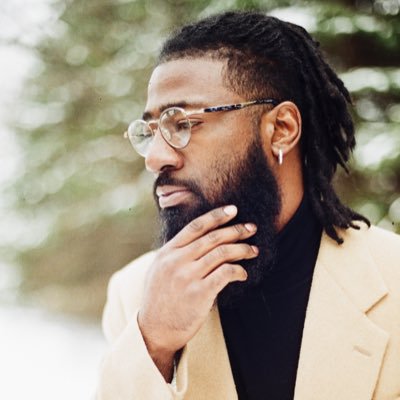
Poet Leroy Bean
Shon Houston: Where did poetry begin for you?
Leroy Bean: Poetry began for, in an unconscious sense, when I had to write an autobiography for a senior project in high school. I never imagined writing anything that big, so to break it down, I wrote poems for the transition moments in my life to help me keep consistency throughout the assignment. Although I didn’t know much about poetry, there was something inside of me pushing me to express myself in that way and even led me to present a poem, from my autobiography, at my graduation. Shortly after, I started to develop a craving for new rap music and I felt like I could be the rapper that I was looking for. One of my first “verses” as a rapper I spit to my friends. One of them responded, “Yeah, that was a good spoken word,” as he laughed. I was salty for a second but then thought, “Spoken word doesn’t sound too bad,” but I didn’t write anything else for about a year, which was the moment that poetry really became my passion on a level that I was aware of, and I remember it vividly.
It was January 2014, and life had forced me to sit on my mom’s living room couch and get my life together. I had dropped out of two different colleges between 2012 and 2013. I was laid off from my job, I had just been in an accident that left my car totaled, and there was not a damn thing I could do to speed up the process of fixing it all. At that point all I had was myself, and once again something in me told me to pick up the pen and write. From that moment [I used] poetry . . . to express the depression I had for my reality. I wrote every day, started a poetry blog, posted on Facebook, and the feedback motivated me to keep writing. I wrote my way out of that hole, into a new job, a new car, and an apartment of my own and into a new state of mind. After writing every day for nine months, I found a poetry slam at a bar. I had never performed at a show or open mic before. I had never memorized a poem; I still barely had a reference for what poetry was or even accomplished poets [to look] up to. Nevertheless, I put my all into that performance, and the rest took off from there.
SH: What does your poetry feel like, mentally, physically, emotionally, and spirtually?
LB: Mentally, my poetry feels like an epiphany, a realization of truth, a trip through the imagination. It physically crawls up my skin and travels through my soul, giving me this feeling that my heart just fell from my chest. It manifests a mirror that you are forced to look in, triggering a series of memories to flash before you to find closure and healing through the poem. It opens up a portal in your being, makes your spirit feel bigger than your body. It makes you feel whole and connected.
SH: How has art impacted your black experience, and how has your black experience impacted your artistry?
LB: Naturally, due to the influence of white supremacy, I believed that art was a white thing growing up and learning about it. Black art is pretty much fenced off at the Harlem Renaissance. I almost felt as if African American Poetry, or even [black] writers for that matter, began and ended with that era. As celebrated as the Harlem Renaissance was, there was a hit on black intellectual culture [that] forced people to believe that being a writer is an unrealistic dream. I told my old principal that I am a poet, and her first response was, “Can you pay your bills with that?” And I instantly took offense but answered with a confident, “Yes.” Art has allowed me to share my experience and resonate with the experience of others to guide me on my path. Art was one of the first things that I could truly believe in because it is truth and perspective, and that is all the guidance I need to explore and discern [my identity].
My black experience . . . is the reason why I ended up creating art, even if I didn’t realize it at first. Even today, I still find myself unpacking trauma and experiences that have contributed to my character. My poetry reveals the life of a black male writer in culture, social and political issues, classism, and good ol’ fashion systematic racism. However, I still find ways to shine the light from my black experience to help my audience find the power and beauty within themselves and celebrate their existence.
SH: What are your goals as a creative?
LB: Honestly, I want to bring all of my ideas to life and really expand on the limitations that people have. I want to reconstruct the entire way the world operates, one piece at a time. Currently, I am focused on developing . . . Baldwin Cafe, a space centered around the [black] community to support its growth and the growth of its people through meditation workshops, African American literature, healthy food culture, safe spaces for men and women, writers’ groups and more! I want to provide a creative platform or hub (maybe even a school) for the youth [in my community] to engage in and learn to feel confident that life isn’t just college and business—but that there is a huge creative aspect that actually allows colleges and businesses to flourish that often doesn’t get the respect and love it deserves.
SH: What are your goals as an artist?
LB: I want to bring poetry, writing, and storytelling back to the forefront [of my work]. I hope to have a poetry show on national TV or online because I feel Def Poetry Jam was a creation that should have stayed a part of our culture. I want to be a best-selling author as well as win an award for best poetry album. I want to bring poetry closer to music and create masterpieces of poetic flow and melodic sound. I want to merge poetry with advertisement.
SH: Do you have a daily routine? If not, what would be an ideal routine for you?
LB: My routine is under construction as far as putting it into practice [goes]. However, my ideal routine is waking up around 5 a.m., prepping tea and water, then meditation. After meditation, I will journal a bit, expressing what I am grateful for, [exploring] what needs improvement, and how I am feeling. Next, I would complete my to-do list and prepare my mind for the day. Throughout the day I go with the flow with the mindset to finish important tasks, but not punishing myself for things that don’t get done. At night, I’d like to meditate, drink tea and water, and go over what my day will look like tomorrow and be in bed by 10:30! I imagine the 10:30 bedtime will be a stretch considering performances usually happen at night.
SH: How many revenue streams do you have?
LB: I have about three main streams of revenue right now. I work in a library, I teach an afterschool program, and I’m a poet.
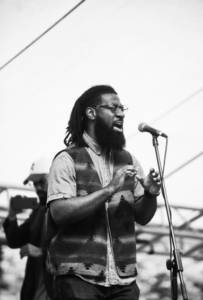
Photo by Annie Noelker
SH: What does your support system look like?
LB: It’s my life honestly! . . . The people I keep around are so uplifting for everything I do . . . their support continues to drive me, and I know that no matter how many people doubt me, it is proven that there are people who support me and are wishing for my success and waiting for new ideas to surface.
SH: Do you ever struggle with negativity, mentally or emotionally?
LB: Self-doubt, impatience, and lack of confidence are all negative things within myself that I constantly have to fight, and that fight is a lot more difficult than fighting negative people. However, I am also practicing the tools it takes to have a healthy mentality. When I began my journey of, not only poetry but also growth as a human being, I began to reconstruct my perspective of reality and that, in turn, shifted my reality. I gained control over what I allowed in my life, and now everyone and everything I keep around me is positive. Whenever I need help in any aspect of my life, I know a number of people that I can rely on for positive reinforcement. Especially, my girlfriend—we get deep into ourselves and are 100% transparent about what we experience, and she is always there to help lift me up in moments I am drowning in negativity.
SH: What does your ideal audience look like?
LB: My ideal audience is 17 to 35 years old—humans with a sense of empathy and understanding [who are] intellectual and spiritually in tune. My audience is looking for answers in the world; they are exploring themselves and questioning the reality that has been presented to them. They are loving and compassionate or at least trying to learn how to be. . . My audience is not afraid of the truth, and they have faith in the power of healing.

